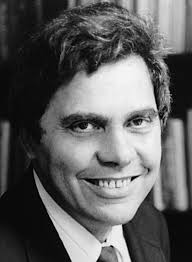
Neil Postman, Author and Media Theorist
March 8
2003
October 5
2003
Introduction
Key Contributions
Amusing ourselves to death, the disappearance of childhood, technopoly, teaching as a subversive activity.
Early life and education
Career and major works
Neil Postman was a significant figure in American education and media theory; he dedicated his career to analyzing how media and technology affect culture and education. His academic journey started in 1958 at San Francisco State University. Later, he spent many years at New York University (NYU), where he founded the graduate program in media ecology in 1971. This program highlighted the study of media environments and their influences on society. At NYU's Steinhardt School of Education, he served as a University Professor and led the Department of Culture and Communication until 2002.
Throughout his professional life, Postman’s primary focus revolved around how media shapes public discourse and culture. One of his earliest noteworthy books was Teaching as a Subversive Activity (1969), co-written with Charles Weingartner. This book questioned traditional educational practices and called for an emphasis on critical thinking within schools.
Postman achieved widespread recognition with his landmark work, Amusing Ourselves to Death: Public Discourse in the Age of Show Business (1985). In this influential text, he contended that television changed serious public discussion—including topics like politics, history, and news—into a form of entertainment, trivializing key issues. He compared the perspectives of Aldous Huxley and George Orwell, suggesting that contemporary media culture aligns more closely with Huxley’s vision of a society whose engagement with important topics is diminished by amusement. This book has been translated into over a dozen languages and is still significant due to its criticism of how visual entertainment impacts attention spans and meaningful dialogue.
Other essential writings include The Disappearance of Childhood (1982), where Postman explored how childhood, a cultural concept tied to print literacy, is blurred by electronic media. In Technopoly: The Surrender of Culture to Technology (1992), he raised alarms about society's unexamined trust in technology, coining the term "technopoly" to highlight how it can overpower and sabotage social structures and cultural values.
His critiques didn’t stop there; in The End of Education: Redefining the Value of School (1995), Postman argued against the growing focus on economic efficiency and technology in education, promoting a vision of education as a way to foster cultural unity and critical thinking.
Throughout his career, Neil Postman consistently examined the complex relationship between society, media, and technology, stressing the importance of maintaining curiosity and critical thinking to uphold significant communication and cultural richness.
Critique of media and culture
Impact on education and communication
Philosophy and key ideas
At the heart of Neil Postman’s philosophy is a keen focus on how technology shapes our culture, education, and discourse. In his influential book, Amusing Ourselves to Death, he famously contended that television transforms serious topics, like politics and news, into entertainment; this shift trivializes discourse and undermines society’s ability to engage meaningfully with important issues. Postman introduced the term technopoly to describe a state where technology governs all aspects of life, often sacrificing human judgment and cultural values in the process.
In the realm of education, Postman championed the importance of historical context and what he termed languaging—the skill of questioning, listening, and effective communication within each subject. He rejected the notion that technology should dictate learning and believed education must guide individuals "out of the shadows" of mediated illusions, fostering genuine engagement with reality.
Later writings and legacy
Personal life and beliefs
Summarize more, read faster.
Generate unlimited text summaries quickly and easily with our AI-powered summarizer.
Start Summarizing